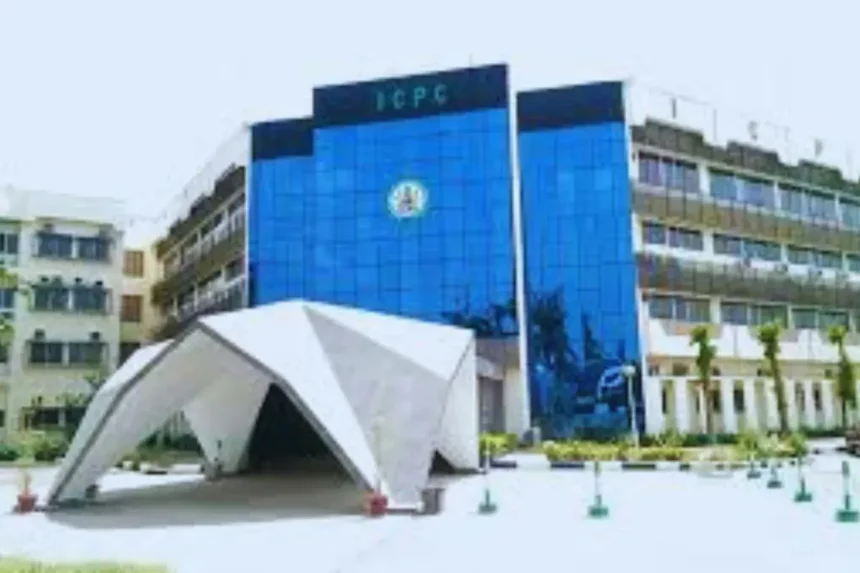The Independent Corrupt Practices and Other Related Offences Commission (ICPC) has launched a comprehensive investigation into alleged financial irregularities in the disbursement of Nigeria’s student loan scheme.
The anti-graft agency disclosed this via its official X (formerly Twitter) handle on Thursday, stating that the probe was triggered by credible reports of unlawful deductions and exploitation of students by certain beneficiary institutions.
According to the ICPC, preliminary findings have uncovered “clear discrepancies” in how funds meant for students were handled, prompting the expansion of the investigation to include the Nigerian Education Loan Fund (NELFUND), beneficiary tertiary institutions, and some student recipients.
Findings Reveal Financial Gaps.
The ICPC revealed that as of March 19, 2025, NELFUND had received a total of ₦203.8 billion from the Federal Government. However, only ₦44.2 billion was disbursed to 293,178 student beneficiaries across 299 institutions.
A breakdown of the funding sources shows that ₦10 billion came from the Federation Allocation Account Committee (FAAC), ₦50 billion from the Economic and Financial Crimes Commission (EFCC), and ₦71.9 billion (disbursed twice) from the Tertiary Education Trust Fund (TETFund).
You May Also Want to Read: $2B Oil Debt: Protesters Demand Probe of Ex-NNPCL Boss.
Despite the substantial funds available, many students reportedly experienced unauthorized deductions from the loan disbursements—particularly where duplicate payments occurred. In some cases, students had already paid their tuition before NELFUND processed their applications, resulting in institutions receiving payments both from the student and NELFUND. Allegedly, some of these institutions withheld part of the refunds, citing unjustified deductions.
ICPC Investigative Actions.
To address these concerns, the ICPC said it has issued document requests and letters of invitation to key officials, including:
- The Executive Director of NELFUND
- The Director General of the Budget Office
- The Accountant General of the Federation
- Senior representatives of the Central Bank of Nigeria
Interviews have been conducted with relevant stakeholders, and their responses are being thoroughly reviewed.
How the Scheme Works.
The student loan scheme, launched last year, allows students in public tertiary institutions to apply for financial assistance via the NELFUND portal. Applicants can choose between loans covering only tuition or those that also include a monthly stipend of ₦20,000.
Before approval, NELFUND verifies applicants’ details with their institutions, departments, and the Joint Admissions and Matriculation Board (JAMB). Once approved, tuition fees are sent directly to the schools, while stipends are paid directly to eligible students.
You May Also Want to Read: Corruption and Heritage: The Debate Between Kemi Badenoch and Kashim Shettima.
Allegations and Institutional Misconduct.
Earlier this week, The Guardian published a report listing 51 institutions accused of making illegal deductions. While NELFUND distanced itself from the report, it stopped short of explicitly denying the allegations.
Additionally, NELFUND and the National Orientation Agency (NOA) have accused some unnamed institutions of collaborating with commercial banks to frustrate the scheme. These schools allegedly withheld disbursement details from their students and continued to demand tuition fees despite confirmed payments from NELFUND.
You Also Want to Read: Obasanjo Calls for Merit-Based Leadership to Combat Nigeria’s Corruption Crisis.
As the ICPC continues its probe, stakeholders across Nigeria’s education and anti-corruption sectors are watching closely. The outcome of the investigation could lead to systemic reforms in how student loans are managed and disbursed nationwide.















